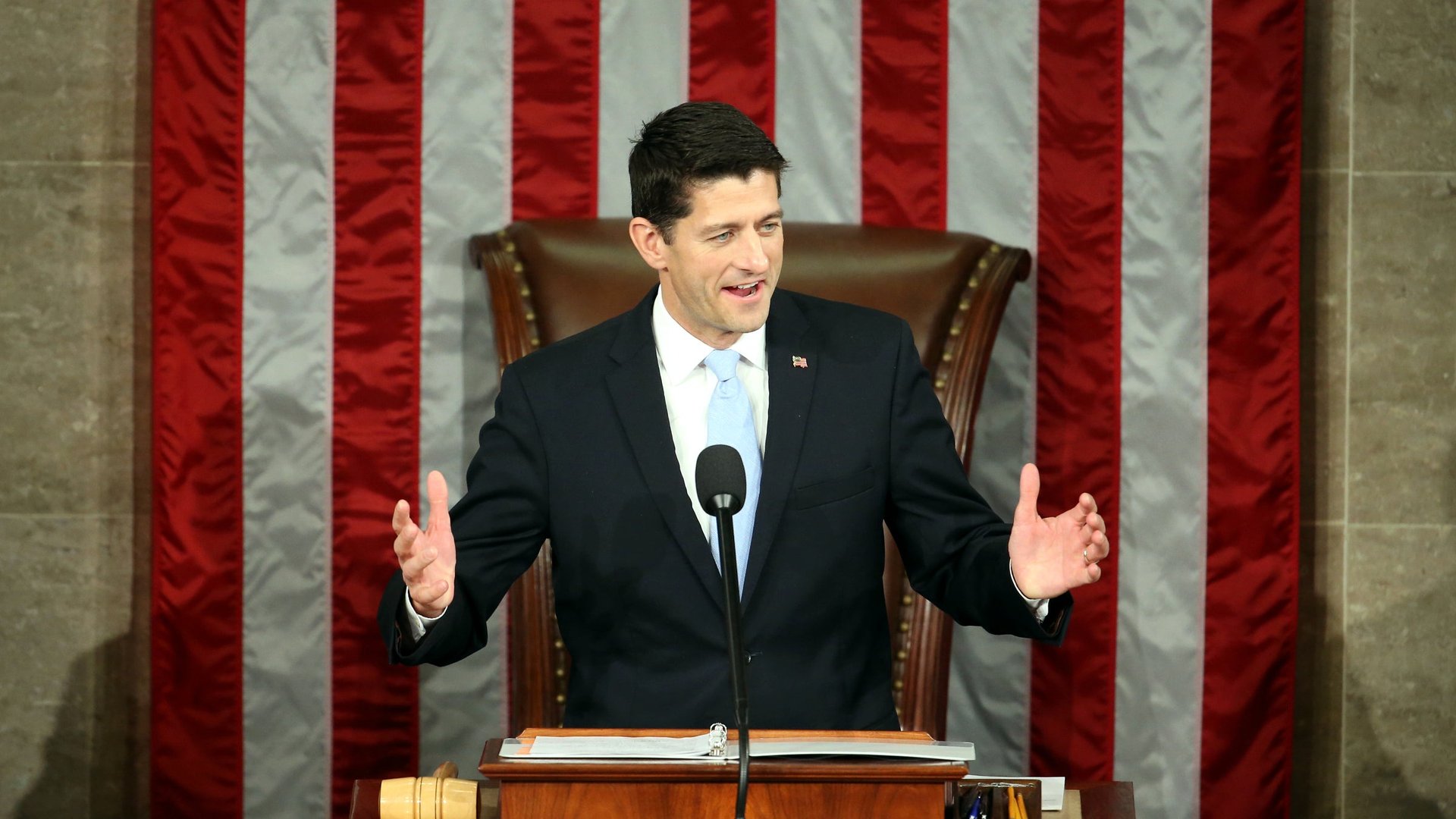Paul Ryan’s hands are tied as House speaker—unless he gives up on Republican presidential hopes
Paul Ryan worked hard to climb the greasy pole of power in Washington, a humble Congressional aide moonlighting as a waiter who today became the Speaker of the House of Representatives.


Paul Ryan worked hard to climb the greasy pole of power in Washington, a humble Congressional aide moonlighting as a waiter who today became the Speaker of the House of Representatives.
But he’ll have almost nothing of substance to do for the next year.
Ryan made his name as a budget policy wonk, but there’s little to do there: his predecessor John Boehner wrapped up a deal (one he couldn’t have made without quitting) that should settle the spending and debt debate for the next two years. And Ryan made his own deal with House conservatives to ascend to the Speakership, promising that he would not act on immigration reform during the Obama presidency. Perhaps needless to say, climate change isn’t a priority for his caucus.
His biggest chance for substantial impact will be shepherding the Trans-Pacific Partnership through a majority Congressional vote. Otherwise, it’ll be a steady diet of political theater: bills designed to force Democrats into tough votes or make Obama exercise his veto so that Republicans have grist for the campaign mill. One side benefit: Ryan will have plenty of time to get the Republican caucus on the same page, policywise.
But there is a pressing issue we haven’t mentioned: Reform of the tax code, which is a business priority, especially for US multinational companies keeping more than $2 trillion in overseas subsidiaries, and for Democrats concerned that the code’s inefficiencies and poor design tilts it in favor of the rich.
Both Republican lawmakers and the Obama administration have laid the necessary groundwork to reach a deal on the issue, but there’s one big hitch, besides the enormous technical and political challenges. A major bipartisan compromise would be signal that Republicans are giving up on their presidential nominee.
Thats because a potential Republican victory next fall would change the picture in Washington considerably, giving Republicans more leverage over the policymaking process. Any Republican deal with Obama—on the tax code or any other issue—would essentially mean that the party’s lawmakers doesn’t expect their nominee to win. And so Ryan is likely to spend yet another year planning to enact the momentous cuts to US government he has envisioned for his entire political career.
But this analysis also means that Donald Trump winning the Republican nomination might be the quickest path to tax reform. Go figure.